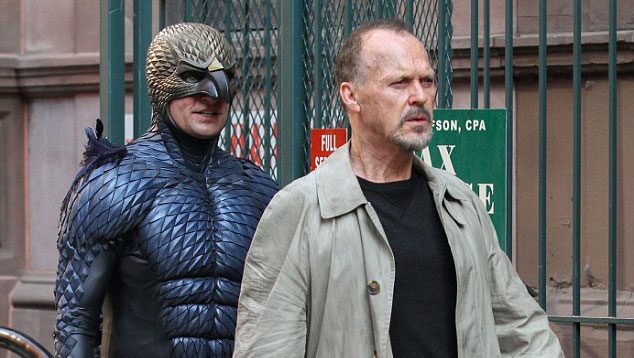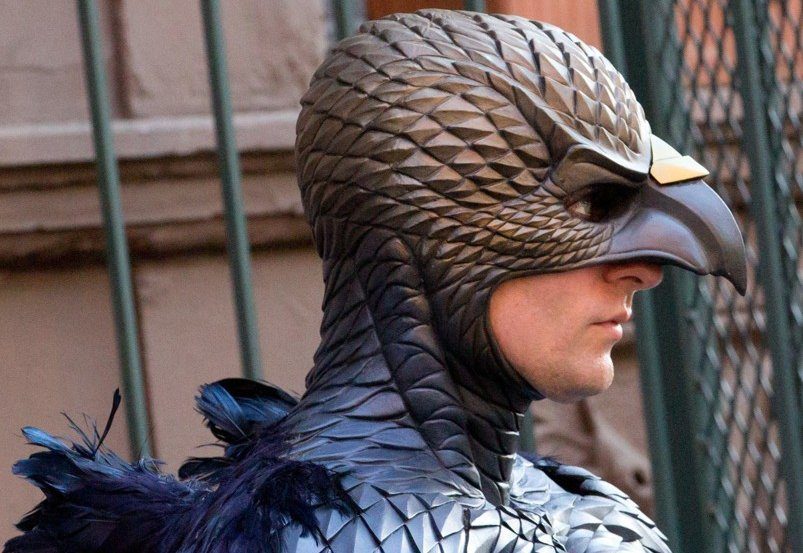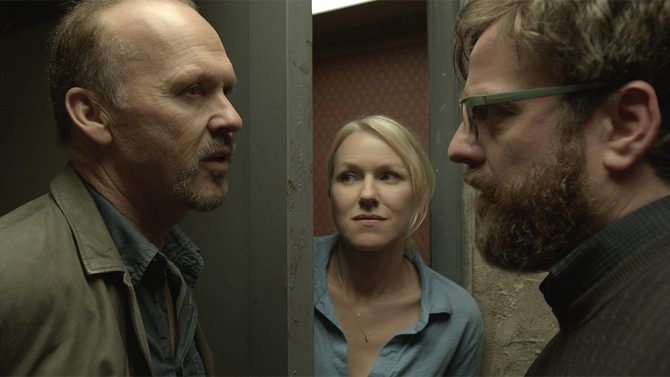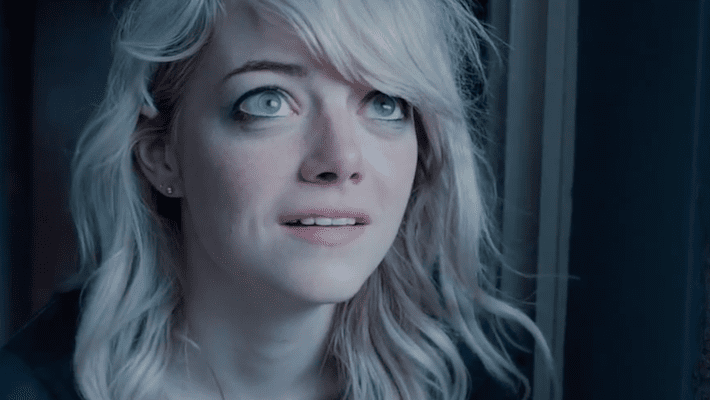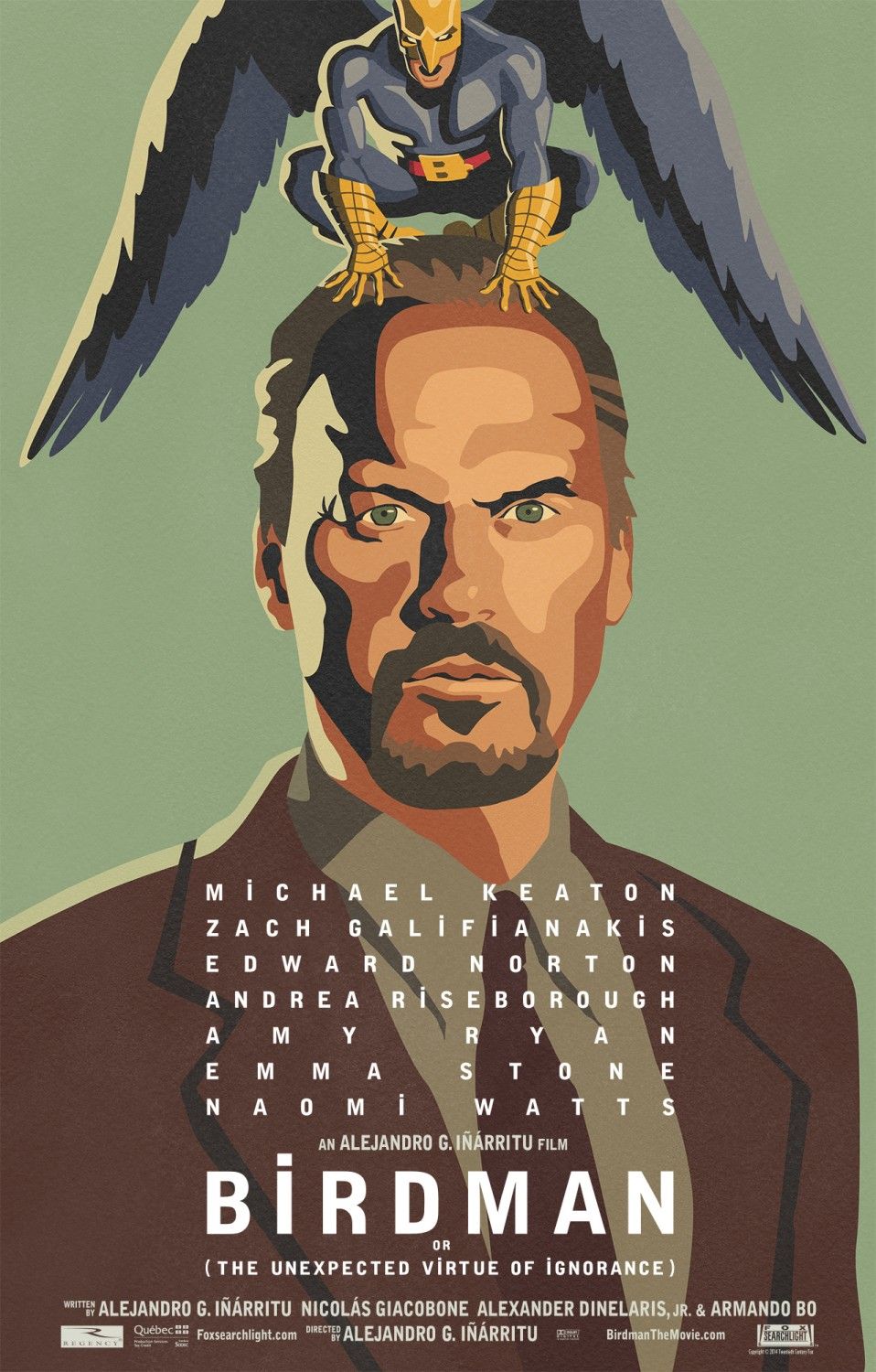So it’s that time of year again, when many of the films that cinephiles will consume at Toronto International Film Festival are first seen a week prior by patrons of the Telluride Film Festival in Colorado. Even their similar acronyms and hashtags (#TFF vs #TIFF) lend to this contentious stealing of thunder every year in Telluride, Colorado. To be fair, there is a touch of magic in Telluride that no other festival can replicate. The setting is nestled between vast expansive mountain ranges, a mile high towards the sun, barely a few square miles in total make up the town, and everywhere you look there is a breathtaking sight to behold.
A flowing waterfall down a mountianside, the sun hitting the peaks of lush green peaks hovering over the many old buildings and the random art emblazoned in virtually any surface in town, the danger of bear attacks all around you (one tore off the refrigerator door of the local outdoor java hut “The Coffee Cowboy” in the twilight hours shortly before the festival started), the gondola rides up and over the tall mountains that take you to nearby Mountain View, that houses one of the biggest venues of the festival, the chuck Jones Cinema. There is no better place to watch movies than in this glorious bubble where the rest of the world is far removed and you can bask in the glow of the silver screen for the whole Labor Day weekend.
The festival is ever conscious of it’s inspiration- a deep love of cinema. The list and schedule of films is not released until the day prior to the opening of the festival- to ensure high-profile media doesn’t crowd the small town with paparazzi and take up all the limited lodging from passholders who just want to see the films. Those who come do so to express their love of film and see a socially conscious variety of avant-garde, international, independent and documentary cinema with a spoonful of Hollywood sugar to balance everything out. As a former member of the Telluride Student Symposium in a few years ago, the enchantment that the experience cast upon me could never be undone by any hot prince’s kiss. Now I come back every year, and am happy to report that this year’s festival has several amazing films and their creators here to talk about them (like last year’s Oscar winners for Best Picture and Best Director: 12 Years a Slave and Gravity).
Birdman
The film I just had the pleasure of watching was Birdman, the new film from Alejandro González Iñárritu (Amores Perros, Babel, 21 Grams, Biutiful). The film stars Michael Keaton as Riccan Thomson, a washed-up Hollywood action star who wants to prove his mettle as an actor by starring and directing in his own Broadway adaptation of Raymond Carver, in an age of social media that didn’t exist when he made his living as a fictional 90’s superhero called “Birdman.” The film is like Black Swan but without the ballet, and I don’t mean to insult the film by saying that. Birdman tells its story through the perspective of a performer’s tortured psyche, in this case an actor who wants to be taken seriously, and thus must mentally juggle his own competing personae of Hollywood star, stage actor, and his real self which vanishes imperceptibly into the others.
Birdman also shows us the inner workings of theatre that Riccan must blindly navigate in his Broadway debut, amidst his personality crisis. The cast is a pretty motley crew, and all fantastic, with Emma Stone as Riccan’s daughter/assistant fresh from rehab, Zach Galifianakis as his frustrated attorney and producer, and Naomi Watts (who worked previously with Iñárritu in 21 Grams) and Edward Norton as fellow actors in Riccan’s foray into theatre. But I don’t think I have seen them in recent memory more connected to their roles than they are here, without sacrificing those qualities that distinguish them.
They all retain their own sense of style as performers, yet never rest on the laurels of their idiosyncracies. Zach Galifianakis is still the actor you expect him to be, but he actually plays a character rather than himself, and totally convinces as the harried lynch pin holding together his client’s last desperate cry for respect. The same with Emma Stone and Naomi Watts, they are so in tune with their characters that it accentuates the mindfuck of a film that Iñárritu has created. They have filtered their quirks through these characters without letting them take over, and in the process created people that you feel invested in. Michael Keaton is the best example of this, and I honestly think he has never been better in his entire career.
In recent years most people instantly imagine a manic, twitchy, head-bobbing performance when they think of Michael Keaton. But this film seems to catch him at a certain phase of his life and career in the same way that The Wrestler captured Mickey Rooney at exactly the right moment. Keaton seems very much grounded in a deeper, nervy place and his performance simmers with the accents of experiences that you could assume an actor of his stature and reputation would have. With the critical clout of his director, this performance could be a force to be reckoned with come awards season, and I certainly hope he gets the recognition he deserves for it.
Keaton had a lot to accomplish to make this film effective. The film opens on him, floating in his dressing room, cross-legged Indian-style in his tighty whiteys. Right away, we are placed in his headspace, to the tune of syncopated drum rhythms that cue us in to expect an off-kilter warp of reality (and which may be the cue throughout the film of when and where he slips away into his own head). Frequently the film flies off on the same linear visual plane into voice-overs, imagined telekinetic powers and superhuman feats that Riccan hallucinates, on the wings of a series of long-shots that give the illusory effect of the film consisting of a single shot.
The anxiety and expedience with which things must take place in a theatre to ensure a successful performance, runs throughout as a direct result of this illusion as the cast wanders on and off stage, in and out of their Carver characters within Iñárritu’s characters, and yet still through the identities of Keaton’s character in both realms. It creates a sense of the actors in the film as truly performing in a live play, on a train that doesn’t stop until it reaches its final destination. The sets melt into other sets within the same shot, or the camera travels through dark patches of lighting to disguise the cuts, but the overall effect wholly envelops you into this interior world exploding all over the outside, like the gunshot to the head of Riccan’s character at the end of the Carver play.
Norton’s character, a pretentious but brilliant actor who costs top dollar and is notoriously difficult to work with, perfectly encapsulates the “actor’s” personality issues that complicate Riccan’s goals. The dialogue Norton rattles off is so eerily spot-on to anyone who has ever been in the theatre-he truly sounds like an overzealous thespian high on his own talent, and copious amounts of alcohol. But he says something that resonates across the film-that he can only be real on the stage, and can’t “perform” in his “real” life (this turns out to be more accurate than you might imagine).
The question of where does the performance begin and non-performance end, and vice versa, creates a vertiginous dance between fantasy and reality that Iñárritu seems to suggest makes see-saws of the psyches of all performers, on stage or not. The other actors are shown constantly seeking validation of the quality of their performance, and battling self-doubt backstage with each other but otherwise less-tortured in their everyday lives, a touch that naturally influences the realism of surrealism in Iñárritu’s vision of the twisted pathways, literal and internal, that performers always wind through.
Acting is by itself quite terrifying. You need to be able to instantly disassociate from your perception of what you really look and sound like to maintain fidelity to the truth of your character, no matter who that character is. But you still have to know what you literally look and sound like and tweak it to make sure it plays. You have to be unafraid to be ridiculous, but know how to temper it so that you aren’t actually ridiculous. You literally feel like you’re riding naked on an emotional rollercoaster dipping above and below the line of reality, displaying yourself for a crowd and its potential judgments.
No matter how well-adjusted an actor is, it’s a funny mental skill that makes them seem crazy to everyone else, as people who routinely have to occupy incongruous planes of existence and experience at the same time. Birdman plays with these ideas and doesn’t propose any easy answers to the performer’s dilemma. It does offer fascinating insight into the creative mindset of the actor, through the lens of a middle-aged blockbuster star who doesn’t want to leave the world without it knowing he had real talent, and who hasn’t fully adapted to the modern world of viral videos and Twitter as necessary staples of success. I definitely think this will be worth your time once it reaches theaters.

